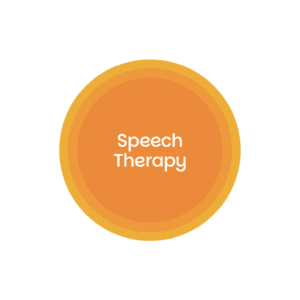
Speech Therapy for Autism, ADHD and Other Neurodevelopmental Conditions
At HUG Center, we understand the importance of communication skills for every child’s success. Our Speech Language Pathologists (SLP) provide individualized speech therapy services to target various communication challenges, such as stuttering, speech and language delays, and reading difficulties. With a collaborative and supportive approach, our SLPs work with each child to enhance their verbal and non-verbal communication skills, improve their self-confidence, and promote their academic and social success.
Areas of Growth

Communication

Cognition

Concentration

Cultural awareness

Creativity
SPEECH THERAPY FAQ
Q
What is speech therapy, and who can benefit from it?
A
Q
How long does a child typically require speech therapy?
A
Q
How can speech therapy for toddlers and children assist with speech and language disorders in a school environment?
A
Q
How does speech therapy integrate with other therapies, like occupational therapy, to support a child’s development?
A
Speech therapy and occupational therapy can work together to provide a comprehensive approach to support a child’s development. While speech therapy addresses communication challenges, occupational therapy focuses on improving fine motor skills and functional abilities. Together, they facilitate better communication, social interactions, and skill development in daily activities and learning environments.